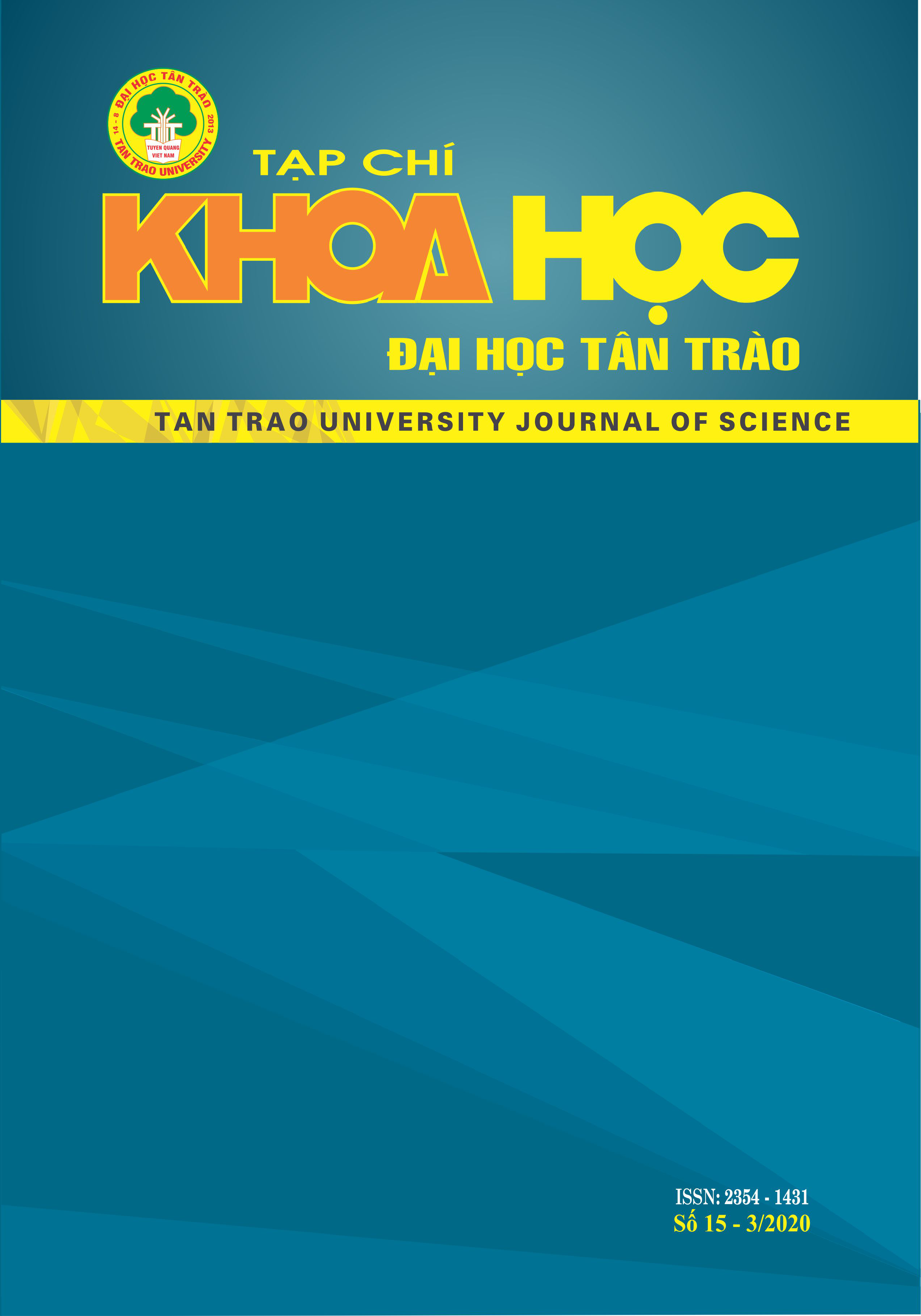Influence of some LEDs produced by Rang Dong on the growth and development of shoots of Eucalyptus PNCT3 and Acacia hybrid variety BV10 in Vitro conditions
DOI:
https://doi.org/10.51453/2354-1431/2019/302Keywords:
Led, Eucalyptus PNCT3, Hybrid acacia BV10, In vitro.Abstract
Light, one of the key factors for plant growth and development, is involved in many physiological processes of plants, including photosynthesis; Optical process generates morphology, light direction. In studying the impact of light on the growth and development of Eucalyptus shoots PNCT3 and Acacia hybrid BV10 used different types of lights produced by Rang Dong such as: 16w white light LEDs, Led lights 10w white light, 16w yellow light Led, 10w yellow light Led and reference formula using 36w fluorescent lamp. As a result, after 4 weeks of culture, the formula of using 16w white light Led light of hybrid Acacia BV10 has the highest growth and development capacity; All 4 types of LEDs produced by Rang Dong used in this study were not suitable for the growth and development of PNCT3 Eucalyptus shoots.
Downloads
References
1. Đoàn Suy Nghĩ, Lê Văn Trọng (2006), Giáo trình Lý sinh học: NXB Đại học Huế.
2. Lan Ashdow (2015), "Led lighting in Horiculture," Reseachergate.
3. S. D. Gupta, A. Agarwal (2017), Light emitting diodes for agriculture: smart lighting: Springer Nature.
4. T. Kozai, M. A. L. Smith (1995), "Enviromental control in plant tissue culture - general introduction and overview," in Automation and enviromental control in plant tissue culture, pp. 301-318.
Downloads
Published
How to Cite
Issue
Section
License

This work is licensed under a Creative Commons Attribution-ShareAlike 4.0 International License.
All articles published in SJTTU are licensed under a Creative Commons Attribution-ShareAlike 4.0 International (CC BY-SA) license. This means anyone is free to copy, transform, or redistribute articles for any lawful purpose in any medium, provided they give appropriate attribution to the original author(s) and SJTTU, link to the license, indicate if changes were made, and redistribute any derivative work under the same license.
Copyright on articles is retained by the respective author(s), without restrictions. A non-exclusive license is granted to SJTTU to publish the article and identify itself as its original publisher, along with the commercial right to include the article in a hardcopy issue for sale to libraries and individuals.
Although the conditions of the CC BY-SA license don't apply to authors (as the copyright holder of your article, you have no restrictions on your rights), by submitting to SJTTU, authors recognize the rights of readers, and must grant any third party the right to use their article to the extent provided by the license.


